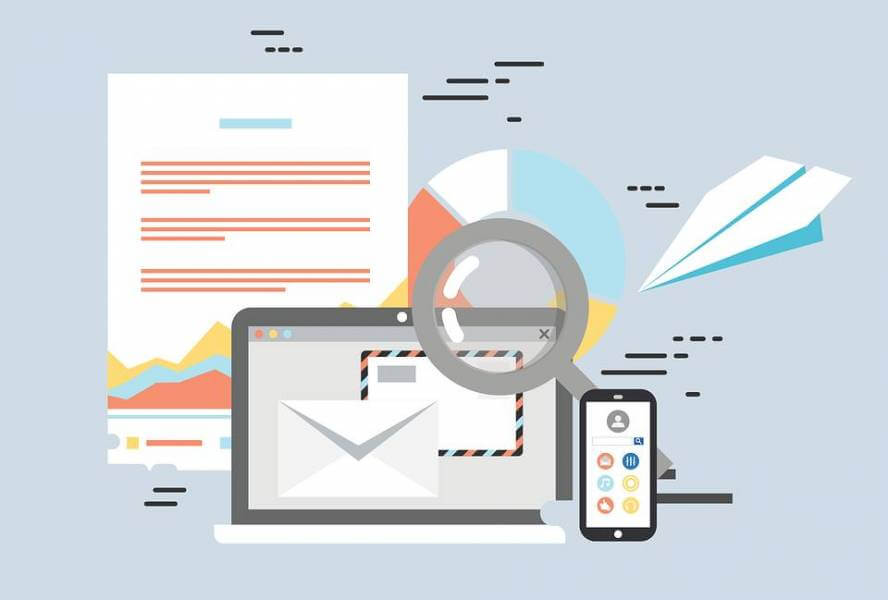An Easy Guide To Understanding How Lead Generation Businesses Work
Many people are unaware of how lead generation businesses work and what services they offer. In this article, we will provide an easy guide to understanding how lead generation businesses function.
Lead Generation Businesses
What Does Lead Generation Business Mean?
It is necessary to first understand what lead generation is in order to describe how lead generation firms function. Lead generation business is the process of recruiting and turning potential clients into actual customers. Customers’ attention is drawn to marketing strategies, which would then be converted into leads. How do lead gen businesses do it? Well, they use numerous methods to attract the attention of potential clients. They include software, such as online call tracking software, and strategies such as pay for click marketing and SEO + PPC (pay-per-click). With these strategies in play, businesses will be able to generate leads for their clients. Here’s a visual example of how everything comes together:
What Are Leads?
In order to generate leads, it is important to know what leads are. A lead is a potential customer that has been contacted as a result of marketing efforts. In the context of the lead generation business, a lead is usually a person that shows interest in what you have to offer. A potential customer who gives his or her contact information is considered as a lead. After beginning communication (by entering personal information for an offer, trial, or subscription), leads usually hear from a company or organization… rather than receiving a cold call from someone who bought their contact information. There are different types of leads, such as:
- Marketing Qualified Lead (MQL): A marketing qualified lead usually has an interest in the product or service that a business offers. It may be generated either online or offline and includes basic information such as email address, name, phone number, and address.
- Sales-Qualified Lead (SQL): These leads are more developed than marketing qualified leads. They have provided significant information about their company and their business, but have not yet been contacted by a sales representative.
- Product-Qualified Lead (PQL): Contacts that have tried your product and performed actions that suggest an interest in becoming a paying client are known as product-qualified leads. A consumer who utilizes your free version yet engages with or inquires about features that are only available with purchase is an example of a PQL.
- Service Qualified Lead: This lead has shown interest in the services offered by a business and is ready to make a purchase.
Lead Generation Businesses
Who Does This Job?
Now that you understand the basics of lead generation, it is important to know who does this job. The people who work in lead gen businesses are usually called “sales representatives.” Sales reps are the ones who reach out to potential customers and try to convince them to buy whatever it is that the company is selling. They are also responsible for converting leads into paying customers. Besides sales representatives, lead gen businesses also have marketing specialists. Marketing specialists are in charge of creating and executing marketing campaigns that will generate leads. They use various methods to track the success of their campaigns.
Why You Might Need Lead Generation?
If you are a business owner, there is a good chance that you will need lead generation at some point. Lead gen businesses offer an efficient way to get new customers without having to do all the work yourself. All you have to do is provide the company with some basic information about your product or service, and they will take care of the rest. This is a cost-effective way to get more leads and grow your business.
Also, you might need lead gen if you are experiencing any of the following:
- Lack of Sales: If you’re not getting enough leads, it’s likely that your sales team isn’t closing enough deals. This could mean that your product is something people don’t want, or your website isn’t effective in converting traffic into customers.
- Not Enough Traffic: If you are getting enough leads, but they are not converting into sales, you probably need to increase your traffic. Marketing efforts are often aimed at generating traffic through the use of content marketing together with PPC campaigns. The more popular your site becomes, the better your chances will be of converting that traffic into paying customers.
- High Cost Of Sales: If your cost-per-acquisition is too high, it might be time to revamp your methods. Try outsourcing lead gen so that you can save money on labor costs and put those funds directly into marketing campaigns instead.
- Trying to Increase Revenue: If you are looking for ways to increase revenue without increasing prices, focus on the percent of customers that are acquired through lead gen businesses. It is often much easier and more cost-effective to increase revenue by increasing the number of paying customers than it is to increase prices.
Lead generation businesses provide an effective way to get new customers and grow your business. If you are a business owner, there is a good chance that you will need lead gen at some point. There are many benefits to outsourcing lead generation including cost-effectiveness and the ability to focus on other areas of your business. Now that you have an understanding of how lead-gen businesses operate, it’s time to run your own campaign!

Founder Dinis Guarda
IntelligentHQ Your New Business Network.
IntelligentHQ is a Business network and an expert source for finance, capital markets and intelligence for thousands of global business professionals, startups, and companies.
We exist at the point of intersection between technology, social media, finance and innovation.
IntelligentHQ leverages innovation and scale of social digital technology, analytics, news, and distribution to create an unparalleled, full digital medium and social business networks spectrum.
IntelligentHQ is working hard, to become a trusted, and indispensable source of business news and analytics, within financial services and its associated supply chains and ecosystems

































